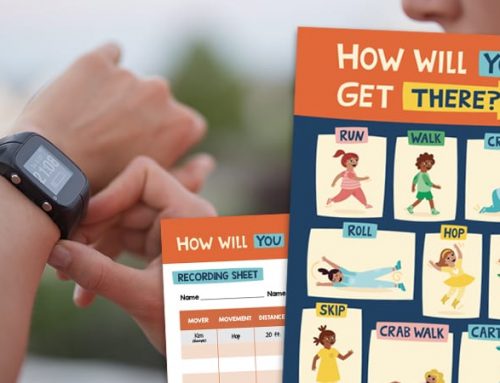Cast your mind back to January 2012. In one of his many overhauls, education secretary, Michael Gove, announced his attention to scrap the ICT curriculum in favour of computing. The idea behind it? To revive the legacy of wartime hero Alan Turing and create “a generation of young people able to work at the forefront of technological change.”
Fast-forward and schools are preparing to implement the curriculum change this September. And while the likes of Facebook and Google welcomed the move, we want to know what the teaching community think. Miles Berry, subject leader for computing education at the University of Roehampton, shares his arguments in favour of the change. On the opposing side, Chris Leach, head of ICT at Winchester House School, argues in favour of keeping ICT.
Why I’m for the changes
It’s hard to deny that there have been some massive changes to computing (née ICT) in the new national curriculum. The name itself changes, as does much of the content, with the introduction of computer science: much more programming, and a far greater emphasis on giving pupils knowledge and understanding of computation and digital technology. While none of this was prohibited by the former curriculum, I am delighted that these now form part of the entitlement for those in local authority schools and a curriculum benchmark for others.
The new focus on computer science (CS) provides ample justification for computing’s place on the timetable. In CS, we have a well-defined and rigorous academic discipline. Like the other sciences, it provides a unique lens through which pupils can understand the world. Given the near-ubiquitous role of digital technology, shouldn’t a rounded, liberal education include these alongside history, poetry and music?
Studying CS will develop pupils’ ability to think like computer scientists. Pupils will gain a portfolio of mental tools labelled ‘computational thinking’, including the ability to look for abstraction, algorithmic solutions, patterns and ways of decomposing problems – as well as a desire to find efficient and elegant solutions. These are skills rarely taught elsewhere on the curriculum.
The insight from Seymour Papert’s Logo work – that we learn best by making things for others – underpins much of the new curriculum, but particularly the coding elements. While we’ve always had a bit of programming on the national curriculum, but this tended to be marginalised in too many schools. We’ve now both the means and opportunity to provide a rich, varied diet of programming experiences at all stages of education, from Roamers and Bee Bots through Kodu and Scratch to Python and Javascript. It’s going to be exciting to see what pupils do with their coding skills: some will go on to be developers and computer scientists, but a future of technically literate politicians, entrepreneurs and managers should bode well for us all.
The most significant change, however, is the switch in focus from skills to understanding. Education ought to be concerned with developing an understanding of ideas and principles, rather than just training people to use particular software. As part of their education, rather than just learning how to search on Google, shouldn’t children also learn how Google puts the results in order and why it keeps track of the queries you type in? Many digital natives are capable of acquiring the tech skills for themselves, but there’s still a critical role for teachers in developing the knowledge and understanding which underpin these: this is just what the new computing curriculum seeks to do.
Miles Berry is subject leader for computing education at the University of Roehampton. As the then chair of Naace, he was part of the working groups that drafted the computing programme of study. He blogs at milesberry.net and he’s @mberry on Twitter.
Why I’m against the changes
What is ICT? Here’s how I define the subject to my pupils – I remind them that ICT stands for information communication technology and is a subject about how we use technology to communicate information. I often find myself telling the children that “ICT is more than computing”. So changing the name of the subject from ICT to computing is limiting the subject and narrowing our curriculum.
Computer science should feature highly in any ICT curriculum and I have gradually increased the amount of computer science in our ICT curriculum independently of the national curriculum. Of course children need to know how technology works so that they can use it more effectively. I don’t just want my pupils to be users of technology but creators as well, which is why I am excited about the possibilities that devices such as Raspberry Pi and Arduino bring.
But I also want the children I teach to understand the social and historical aspects of ICT. With ICT, children look at issues regarding use of ICT in the real world, such as the recent news reports about Twitter trolls; safe and responsible use of ICT is a key component of our curriculum.
Children look at how technology has changed how we communicate and affected society around the world. They consider different forms of communication such as semaphore, morse code and the development of the telegraph. We look at the history of the computer from the early mechanical calculators of Pascal and Schickard through to Babbage’s Difference Engine and Colossus. I want children to understand how technology has developed and to have an appreciation of the visionaries who made it possible. By understanding how ICT has evolved I hope the children will be able to contemplate how it will continue to evolve and be better prepared to adapt alongside it.
One of the reasons for the change of subject name is because of the confusion over what ICT actually is. Is it a tool for learning in all subjects or is it a subject in its own right? I would argue that it’s both. ICT can be used in every subject and, if this is done effectively, the subject becomes much more than what can be covered in separate ICT lessons. Some schools may have decided that they could cover all of their ICT by using it across the curriculum and this has led to the rebrand of the subject so that it becomes more of a focus for schools again.
Chris Leach is head of ICT at Winchester House School (an independent school for 3-13 year-olds) Follow Chris on Twitter @chrisleach78









